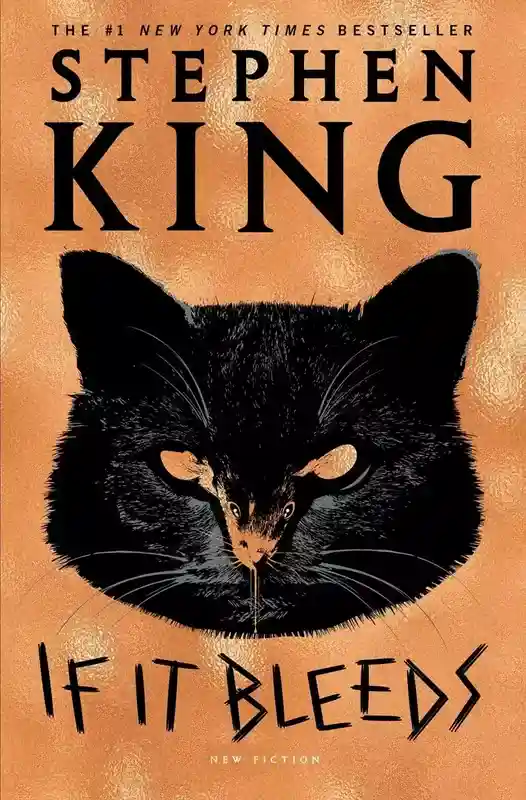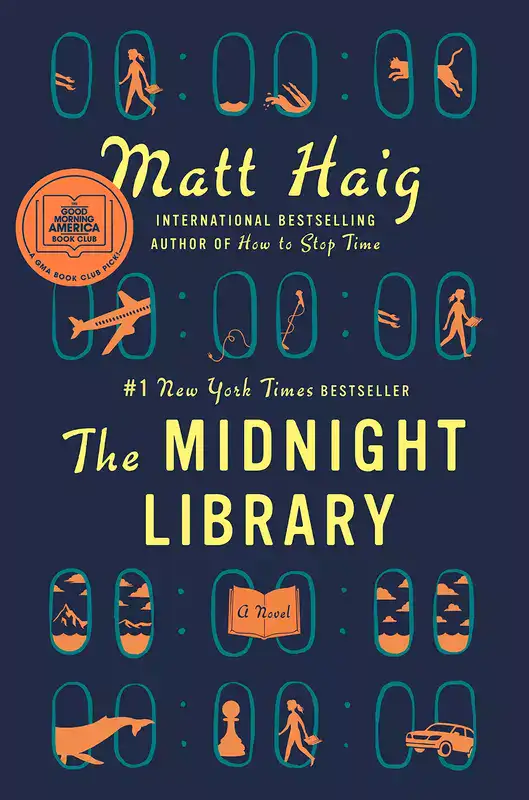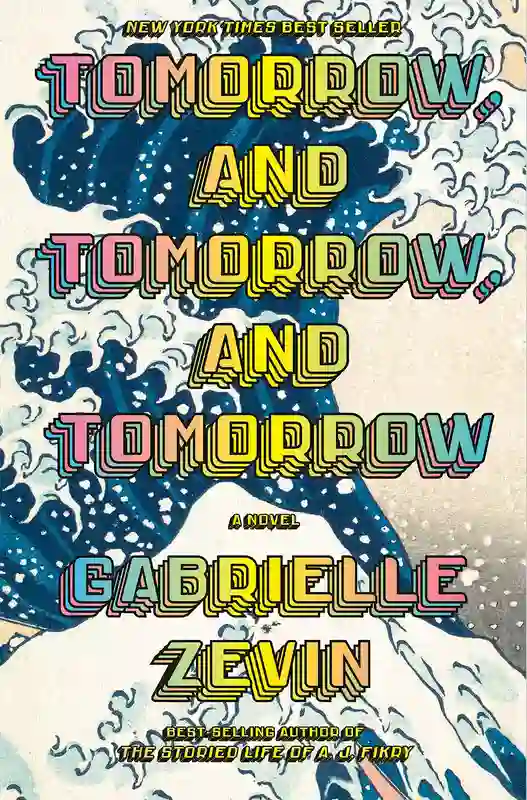This post may contain affiliate links. Read more here.
Book club questions for Fairy Tale by Stephen King invite readers to explore the depths of imagination in this thrilling novel about a young boy who inherits the keys to a parallel world where good and evil are at war.
Through the eyes of seventeen-year-old Charlie Reade, readers will follow his journey as he grapples with grief, loss, and the responsibility of caring for his alcoholic father. When Charlie meets an enigmatic recluse named Howard Bowditch and his loyal dog, Radar, he learns about a secret portal that leads to another world.
As the story unfolds, King’s masterful storytelling creates a magnificent and terrifying tale where good must face overwhelming evil, and a young boy and his dog must lead the charge. King’s imagination takes readers on a journey through deserted cities, haunted buildings, and sprawling palaces with glass towers that pierce the clouds. Fairy Tale is an epic adventure that will captivate readers from beginning to end.
For more context about the story, check out my spoiler-free review first.
With its gripping plot and complex characters, there are many thought-provoking themes to explore in a book club setting. From the nature of fear to the power of storytelling, Fairy Tale offers a wealth of material for lively and engaging discussions.
So whether you’re a seasoned book club member or a newbie, preparing to delve into the pages of Fairy Tale by Stephen King, it can be useful to consider some questions that can spark conversation among your group. Below you will find a list of book club discussion prompts that you can use to kickstart your discussion.
I hope you will find these book club discussion prompts helpful in your exploration of Fairy Tale by Stephen King!✨
The Synopsis
Legendary storyteller Stephen King goes into the deepest well of his imagination in this spellbinding novel about a seventeen-year-old boy who inherits the keys to a parallel world where good and evil are at war, and the stakes could not be higher—for that world or ours.
Charlie Reade looks like a regular high school kid, great at baseball and football, a decent student. But he carries a heavy load. His mom was killed in a hit-and-run accident when he was seven, and grief drove his dad to drink. Charlie learned how to take care of himself—and his dad. When Charlie is seventeen, he meets a dog named Radar and her aging master, Howard Bowditch, a recluse in a big house at the top of a big hill, with a locked shed in the backyard. Sometimes strange sounds emerge from it.
Charlie starts doing jobs for Mr. Bowditch and loses his heart to Radar. Then, when Bowditch dies, he leaves Charlie a cassette tape telling a story no one would believe. What Bowditch knows, and has kept secret all his long life, is that inside the shed is a portal to another world.
King’s storytelling in Fairy Tale soars. This is a magnificent and terrifying tale in which good is pitted against overwhelming evil, and a heroic boy—and his dog—must lead the battle.
Early in the Pandemic, King asked himself: “What could you write that would make you happy?”
“As if my imagination had been waiting for the question to be asked, I saw a vast deserted city—deserted but alive. I saw the empty streets, the haunted buildings, a gargoyle head lying overturned in the street. I saw smashed statues (of what I didn’t know, but I eventually found out). I saw a huge, sprawling palace with glass towers so high their tips pierced the clouds. Those images released the story I wanted to tell.”
In love with literature? Try audio books or writing classes
for free for 30 days.✨
Selected Reviews for Fairy Tale
“You’ll be grateful that there are 600-plus pages of it to remind you several times over how much fun that kind of reading experience is… Good, evil, a kingdom to save, monsters to slay—these are the stuff that page-turners are made from.”
—Laura Miller, Slate
“Once upon a time, Stephen King dared to write a novel called ‘Fairy Tale’ and totally lived up to that simple but lofty title… The book bursts with creativity… A profound story of good vs. evil that’s timeless and timely… life-affirming… After turning that last page, you’ll feel a little stronger in spirit, yearn for another story and, dare we say, maybe even live happily ever after.”
—Brian Truitt, USA Today
“If writing this beautiful, exciting, touching fairy tale did the trick for him, then imagine what it will do for you as a reader.”
—Emily Burnham, Bangor Daily News
“Stephen King has all the daring, enchantment and even romance of a classic bedtime story, but King’s signature unsettling style will keep you sitting up straight and wide-eyed rather than drifting off to dreamland.”
—Vanity Fair
Book Club Questions for Fairy Tale
Spoiler alert: my book club questions may contain spoilers, so make sure to discuss them after you’ve finished reading.
- What is the significance of Charlie’s decision to become the caretaker of Mr. Bowditch and Radar? How does his family history and personal experiences with loss and trauma influence his choice to stay with them and care for them, and what does this reveal about his character and motivations?
- Stephen King takes time to set up Charlie’s normal world before entering the magical one of Empis. What is the significance of this extended setup, and how does it contribute to the story’s overall impact? How does the initial exposition provide insight into Charlie’s character and his relationship with his father and Mr. Bowditch? Do you think the extended setup helps to immerse readers in the magical world of Empis, or does it slow down the pacing of the story?
- How does Mr. Bowditch’s statement, “A brave man helps. A coward just gives presents,” reflect the central themes of courage, selflessness, and sacrifice in Fairy Tale? In what ways does this quote resonate throughout the novel, and what does it reveal about the characters’ motivations and values?
- How does the death of Charlie’s mother and his father’s battle with alcoholism shape Charlie’s worldview and influence his experiences as a child and teenager in Fairy Tale? In what ways do these traumatic events affect Charlie’s relationships with the people around him, and how do they contribute to his personal growth and development throughout the novel?
- How does Charlie’s relationship with his father and their shared experience with alcoholism shape his interactions with Mr. Bowditch in Fairy Tale? In what ways do the themes of addiction and recovery intersect in Charlie’s relationships with these two men, and how do their respective journeys influence his own healing and growth?
- Who is the enigmatic “ha-ha” man in Fairy Tale, and what is his role in the larger story? What symbolism or thematic significance does he represent, and how does his presence and actions impact Charlie’s journey of self-discovery and the larger narrative of the novel?
- Portals into secondary worlds are a common trope in fantasy literature. How does Fairy Tale expand on this genre, and what unique elements does it bring to the portal fantasy? Compare the deep well and cavern into Empis with other portals in fantasy literature, such as Alice’s rabbit hole in Alice in Wonderland or the wardrobe in The Chronicles of Narnia. How does King’s portrayal of the portal add to the story’s themes and symbolism?
- What is the symbolic significance of Radar the dog in Fairy Tale, and how does his relationship with Charlie evolve throughout the novel? In what ways does Radar’s presence and behavior reflect Charlie’s own journey of self-discovery and quest into Empis, and what role does he play in the larger themes of the story?
- Fairy Tale references Ray Bradbury’s Something Wicked This Way Comes. How does the book pay tribute to Bradbury’s work, and what themes or ideas are shared between the two novels? What other literary references can you find in Fairy Tale, and how do they enhance the story?
- In what ways does Charlie’s retrospective point of view and use of language contribute to the overall tone and atmosphere of Fairy Tale? How do his reflections on the past and the use of older phrases and idioms add depth and complexity to his character and the story as a whole? What effect does this characterization have on your reading experience?
- Charlie risks his life to journey to Empis and use the sundial to save Radar. What motivates Charlie to take such a perilous journey, despite the dangers and the unknowns of this magical world? How does his relationship with Radar and Mr. Bowditch influence his decision to enter Empis? Do you think the risks he takes are justified, and why?
- How does Charlie’s journey to Empis help him grow as a person, both personally and professionally? In what ways does his experience in the magical world change his perspective on life, relationships, and the world around him? Why do you think he feels the need to tell this story to the reader, and how does he use his experience to move forward in his life?
- Stephen King wrote Fairy Tale to explore what would make him happy. What are some of the happiest and most exciting moments in the story? How do the tropes and elements of fantasy and fairy tale contribute to the overall tone and mood of the story? What other aspects of the story, such as character development or plot twists, do you find particularly enjoyable or intriguing?
- One of the major themes of the book is the battle between good and evil. How does King explore this theme throughout the novel, and what do you think he is saying about the nature of good and evil? Are the lines between the two clear-cut, or are there shades of grey?
- The novel features a parallel world that is vastly different from our own. How does King build this world, and what techniques does he use to make it feel believable and fully realized? How does the parallel world comment on our own world, and what message do you think King is trying to convey?
- Charlie’s relationship with Radar, Mr. Bowditch’s dog, is a central aspect of the novel. What does the dog represent, and how does she help Charlie in his journey? Are there any other characters or objects in the novel that have symbolic significance?
- King has described the process of writing Fairy Tale as a release of his imagination in response to the early days of the pandemic. How do you think the pandemic influenced the themes and ideas in the novel, if at all? Are there any ways in which the novel speaks to the challenges and fears of our current moment?
- The novel was told in first-person narration from Charlie’s point of view as he looks back on his life. How does this narrative choice affect the reader’s experience of the story? Are there any particular advantages or disadvantages to this perspective?
- Fairy Tale has been described as a creative and fast-paced novel. How does King use pacing to keep the reader engaged and invested in the story? Are there any particular scenes or moments that stood out to you as particularly effective? How does the novel’s structure contribute to its overall effectiveness?
- Fairy Tale has been compared to classic King works like The Stand and The Dark Tower series. How does the novel fit into King’s larger body of work, and how does it compare to his other works thematically and stylistically?
Additional Recommendations
Hope you enjoyed book club questions for Fairy Tale by Stephen King! Here are some more book recommendations along with their synopses.
If It Bleeds by Stephen King
Readers adore Stephen King’s novels, and his novellas are their own dark treat, briefer but just as impactful and enduring as his longer fiction. Many of his novellas have been made into iconic films, including “The Body” (Stand by Me) and “Rita Hayworth and Shawshank Redemption” (Shawshank Redemption).
The four brilliant tales in If It Bleeds prove as iconic as their predecessors. In the title story, reader favorite Holly Gibney (from the Mr. Mercedes trilogy and The Outsider) must face her fears, and possibly another outsider—this time on her own. In “Mr. Harrigan’s Phone” an intergenerational friendship has a disturbing afterlife. “The Life of Chuck” explores, beautifully, how each of us contains multitudes. And in “Rat,” a struggling writer must contend with the darker side of ambition.
If these novellas show King’s range, they also prove that certain themes endure. One of King’s great concerns is evil, and in If It Bleeds, there’s plenty of it. There is also evil’s opposite, which in King’s fiction often manifests as friendship. Holly is reminded that friendship is not only life-affirming but can be life-saving. Young Craig befriends Mr. Harrigan, and the sweetness of this late-in-life connection is its own reward.
The Midnight Library by Matt Haig
The dazzling reader-favorite about the choices that go into a life well lived, from the acclaimed author of How To Stop Time and The Comfort Book.
Somewhere out beyond the edge of the universe there is a library that contains an infinite number of books, each one the story of another reality. One tells the story of your life as it is, along with another book for the other life you could have lived if you had made a different choice at any point in your life. While we all wonder how our lives might have been, what if you had the chance to go to the library and see for yourself? Would any of these other lives truly be better?
In The Midnight Library, Matt Haig’s enchanting blockbuster novel, Nora Seed finds herself faced with this decision. Faced with the possibility of changing her life for a new one, following a different career, undoing old breakups, realizing her dreams of becoming a glaciologist; she must search within herself as she travels through the Midnight Library to decide what is truly fulfilling in life, and what makes it worth living in the first place.
Tomorrow, and Tomorrow, and Tomorrow by Gabrielle Zevin
From the best-selling author of The Storied Life of A. J. Fikry: On a bitter-cold day, in the December of his junior year at Harvard, Sam Masur exits a subway car and sees, amid the hordes of people waiting on the platform, Sadie Green. He calls her name. For a moment, she pretends she hasn’t heard him, but then, she turns, and a game begins: a legendary collaboration that will launch them to stardom.
These friends, intimates since childhood, borrow money, beg favors, and, before even graduating college, they have created their first blockbuster, Ichigo. Overnight, the world is theirs. Not even twenty-five years old, Sam and Sadie are brilliant, successful, and rich, but these qualities won’t protect them from their own creative ambitions or the betrayals of their hearts.
Spanning thirty years, from Cambridge, Massachusetts, to Venice Beach, California, and lands in between and far beyond, Gabrielle Zevin’s Tomorrow, and Tomorrow, and Tomorrow examines the multifarious nature of identity, disability, failure, the redemptive possibilities in play, and above all, our need to connect: to be loved and to love.
Thank you for reading my book club discussion questions & happy reading! ❤️


